NewsBeat
Meta denies forcing users to follow Trump administration accounts

Meta, the company which owns social media networks Facebook and Instagram, has denied forcing users to follow official accounts belonging to senior figures in the new Trump administration.
Some users of the platforms had complained following Donald Trump’s inauguration on Monday that they had “automatically” been made to follow the new president, as well as those of Vice-President JD Vance and First Lady Melania Trump.
Meta spokesman Andy Stone explained that the accounts were managed by the White House, which had updated them to reflect the new position holders.
“This is the same procedure we followed during the last presidential transition,” he wrote in a statement.
The accounts carry the handles Potus – which stands for “president of the United States” – as well as VicePresident and Flotus, an acronym for the first lady.
Archived versions of the pages show the Potus and Flotus accounts previously carried the name and official portrait of Joe Biden and Jill Biden, respectively.
Mr Stone added that it “may take some time for follow and unfollow requests to go through as these accounts change hands”.
Trump became US president for the second time on Monday and quickly set about issuing a range of executive orders and directives asserting his political agenda – ranging from withdrawing from the World Health Organisation to declaring a national emergency at the border with Mexico.
His inauguration was attended by some of the most influential tech billionaires, including Meta boss Mark Zuckerberg and X chief Elon Musk, who also has an advisory role in the new administration.
Trump has previously been heavily critical of Meta, which banned him in 2021 for what it described as his “praise for people engaged in violence” during the 6 January riots at the US Capitol.
The president and his allies also accused the firm of co-operating with the Biden administration to supress reports concerning allegations about Biden’s son, Hunter, and some content surrounding the Covid pandemic. Mr Zuckerberg said he regretted the decision.
In August, Trump wrote in a book that Mr Zuckerberg would “spend the rest of his life in prison” if he attempted to interfere in the 2024 presidential election.
Since Trump’s election win in early November, though, Mr Zuckerberg appears to have curried favour with him, dining with Trump at his Mar-a-Lago residence at the end of the month and donating $1m (£786,000) towards his inauguration a few weeks later.
Meta also said earlier this month that it would end third-party fact-checking in favour of an approach similar to X’s community notes, in an apparent attempt to address some of Trump’s prior criticisms.
The company said this marked a return to its “fundamental commitment to free expression”.
NewsBeat
Unpaid internship access ‘unfair’ to working class, students say

BBC News
 BBC
BBCUnpaid and low-paid internships are “unfair” to working class graduates, students say, as a new study suggests that these opportunities increasingly favour those from a middle class background.
Research from the Sutton Trust, a social mobility charity, says the gap between the two demographics is growing – driven by employers continuing to underpay interns, and giving opportunities to family and friends rather than advertising them.
A poll of more than 1,200 recent graduates shows half have undertaken an internship, an increase of 12% since 2018, but the gap between working class and middle class graduates has widened in that time from 12% to 20%.
Speaking to the BBC, one student says she has had to turn down “potentially wonderful” opportunities as she was not able to afford working for free.
Erin Cruickshank, 20, said one of those was an unpaid internship in London last summer that she ultimately turned down.
The cost of staying in the capital – where she had no family or friends to stay with – would have left her “worse off,” she said.
The 20-year-old, from West Lothian, called the situation “unjust and unfair”.
Unpaid “or unfairly paid” positions are commonplace, Erin said, and many take place in “affluent areas” like London.
“I’ve had to turn down experiences – potentially wonderful ones – because I couldn’t stay in London to have them,” she added.
The proportion of working-class graduates completing an internship is now 36%, compared to 55% for their middle-class peers, the Sutton Trust said.
Graduates in London were significantly more likely to have undertaken an internship than those in the West Midlands, Yorkshire, Scotland and Wales, its research showed.
Around three-fifths of internships undertaken by recent graduates were unpaid or underpaid, the study indicated.
Erin, a French and social anthropology student, decided to take a paid position at a charity in Edinburgh for the summer rather than an unpaid role.
She said: “To others who search for larger internships – from their perspective, maybe that wasn’t the best choice. But for me it was… I had a great experience.”
Since she often funds her own accommodation at the University of St Andrews she only applies for paid positions. She is currently on a year abroad working in France.
“If that means I’m not taking experiences in what others might consider a large name or big business, I take experiences I know will still expand my skillset and help me take steps towards my future.”
In many cases, those undertaking unpaid internships were able to do so because they received money from parents, lived at home or with family or friends, or used savings, the Sutton Trust’s research found.
Chiera Mclaughlin, a fourth year law student at the University of Glasgow, said the decision for many was “balancing whether you want to get experience in the industry you want to work in, or if you have money for food”.
“There’s not that freedom to accept unpaid positions,” she added.
From her experience in the law industry, she said that paid internships were “rare” and “to get any early work experience in law, it’s expected that you wouldn’t get paid for it”.
The Sutton Trust’s research also found that internships were almost twice as likely to have been found through family and friends in an organisation compared to an advertisement, further contributing to the widening access gap.
“If I was trying to get experience in say corporate law or at a law firm of some sort, it seems really difficult to even get your foot in the door if you don’t maybe know someone there,” Chiera agreed.
“I’m the first person from my family to go to uni and I don’t really have any family connections, or anyone in my social circle, that’s in the industry.”
As part of its ‘Make Work Pay’ plan issued before the election, Labour said it wanted to ban unpaid internships, aside from those that form part of an education or training course. Details on when that might happen have not been confirmed.
Politics
Robert Jenrick’s ‘cynical’ call for Attorney General Lord Hermer ‘conflict of interest’ investigation REJECTED

Solicitor General Lucy Rigby has confirmed Shadow Justice Secretary Robert Jenrick’s call for an investigation into Attorney General Lord Richard Hermer has been rejected.
Jenrick had penned a letter to Cabinet Secretary Sir Chris Wormald over the weekend demanding answers to the Attorney General’s work with previous clients.
In the letter, seen by GB News, the Shadow Justice Secretary, Lord Hermer’s listed clients included Sri Lankan asylum seekers in the Chagos Islands, ex-Sinn Fein leader Gerry Adams, Afghan families associated with the ongoing Afghan inquiry and parties interested in Shamima Begum’s citizenship case.
Dismissing Jenrick’s calls for a probe, Rigby told MPs: “I have outlined the rigorous process that exists in the Attorney General’s Office and has existed across administrations of all colours.
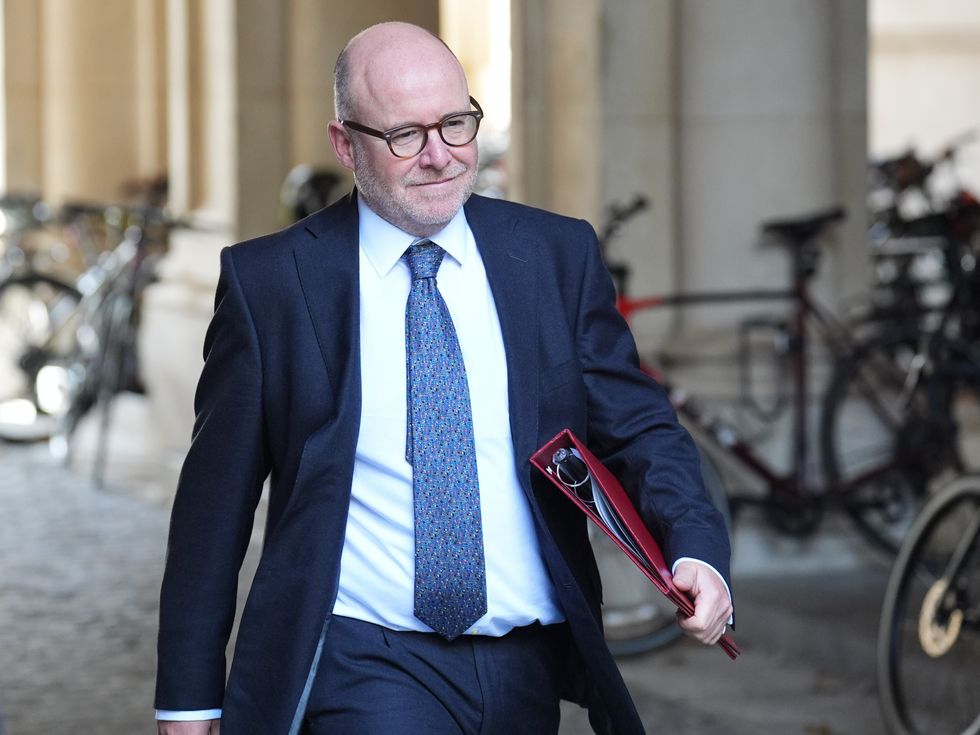 Attorney General Lord Richard HermerPA
Attorney General Lord Richard HermerPA“The House may be aware that the shadow justice secretary [Robert Jenrick] has written to the Cabinet Secretary [Sir Chris Wormald] seeking clarity… on that process and an investigation into it, the Cabinet Secretary has today confirmed by reply that the Attorney General’s Office has a rigorous system in place to ensure that a law officer would not be consulted on any matter that could give rise to a potential conflict of interest.
“He has restated that these arrangements are long standing and part of a standard practice that has applied in successive administrations.”
Rigby also accused the Tories of being “cynical” by linking the Attorney General to his previous clients, including ex-Sinn Fein leader Gerry Adams.
However, Tory MP Ben Obese-Jecty questioned if Lord Hermer’s role as Attorney General remained tenable.
LATEST DEVELOPMENTS:

Robert Jenrick
PA
He said: “The current Attorney General has a track record of taking up multiple cases against the British government. Given his previous work both with regard to Gerry Adams and the families of those making claims against UK special forces, on which matters will the Attorney General recuse himself from advising ministers owing to clear conflicts of interests?
“And if he is not able to fulfil the full scope of his role owing to his prior career, is his position even tenable?”
Rigby replied: “I am afraid I couldn’t be more clear. I have already said that where the Attorney General has conflicts he will recuse himself.”
Today’s row came after the Tories secured an urgent question in the House of Commons.
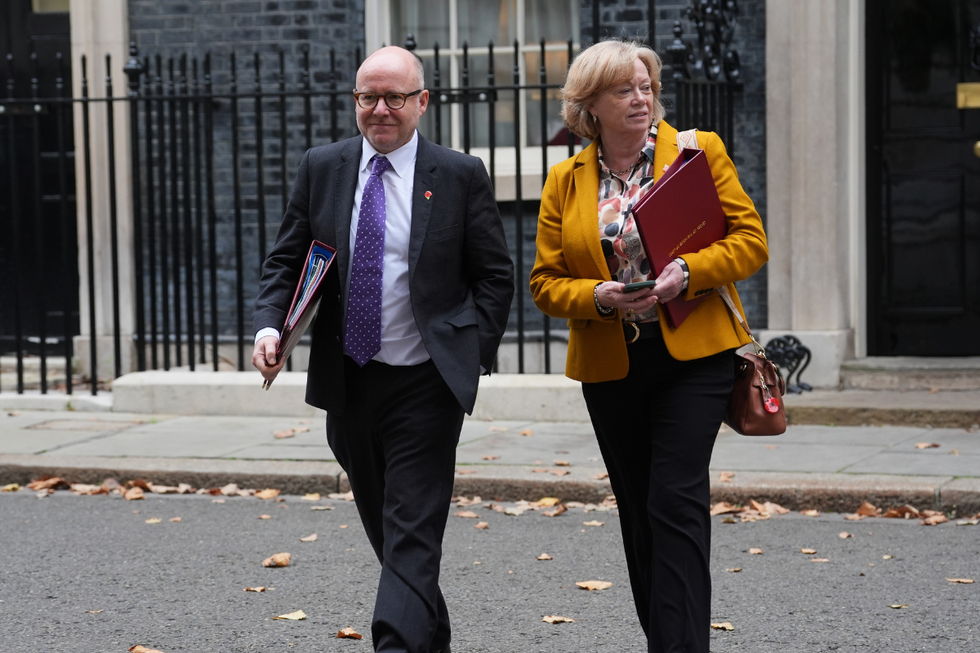 Attorney General Richard Hermer and Leader of the House of Lords Baroness Smith leave 10 Downing StreetPA
Attorney General Richard Hermer and Leader of the House of Lords Baroness Smith leave 10 Downing StreetPALord Hermer came under fire last week after it was revealed that Labour’s will repeal a law that blocked Adams from claiming compensation for his detention.
The Attorney General represented Mr Adams in a separate case where the former Sinn Fein president was being sued by the victims of three IRA bomb attacks.
However, Hermer insisted his work with Adams was unconnected to the legislation.
Rigby said: “It is a central and well understood aspect of the British legal system… that barristers are required to accept instructions if they are available and qualified to do so.”
She added: “She will also be very aware that put simply barristers are not their clients.
“As the Bar Council states, barristers do not choose their clients, nor do they associate themselves with their clients’ opinions or behaviour by virtue of representing them.”
NewsBeat
Urgent health warning to anyone who uses hot water bottles

A woman has urged others to “never use” hot water bottles after her seven-year-old bottle exploded leaving her with third-degree burns.
Karen O’Brien, a 52-year-old retail worker who lives in Melton Mowbray, Leicestershire, with her husband Daniel, 64, and their two children, suffered severe burns when her hot water bottle burst on her lap in March 2024.
The injury caused her skin to blister and peel away leaving “holes in the skin” that worsened by the hour.
At Leicester Royal Infirmary Hospital, doctors removed layers of damaged skin to prevent infection. The burn left her with a large scar on her thigh and permanent skin discolouration.
O’Brien is now warning others to avoid hot water bottles, and if they are using them to check the age.

Hot water bottles perish over time so experts advise to change bottles every two to three years.
If you cannot remember when you bought your bottle, it will have a flower on or near the neck – the number in the middle is the year the bottle was made.
The petals represent months and the dots weeks, for example if there are three dots in the first petal it was made toward the end of January of that year.

“I’ve never known pain like it, it was horrendous,” she said.
“When I first could see the skin, I had blisters coming up straight away, and then you could see where the skin just melted away.
“I pulled my trousers down, and as I did that, I could see the skin coming away with my trousers.
“There were holes in the skin but every hour it was looking worse and worse and worse.
“At first I thought, ‘OK, I know I’ve done some damage here’ but it didn’t look that bad.
“After this, I found out you are supposed to replace (hot water bottles) after around a year, and a lot of them have the date they were manufactured on them… mine might have burst because it was so old.”

O’Brien now has a “big scar” and skin discolouration on the area and if she is cold, the area often goes “bright red”.
She said she is now “so wary” of dealing with anything hot, whether it be making herself a hot drink or cooking.
To people who use hot water bottles, she said: “Never, ever use them, especially don’t give them to children, they are too dangerous.
“My husband’s bought me a battery-powered fleece that keeps me warm so I don’t need to use a hot water bottle.”
NewsBeat
ChatGPT down as thousands report issues worldwide
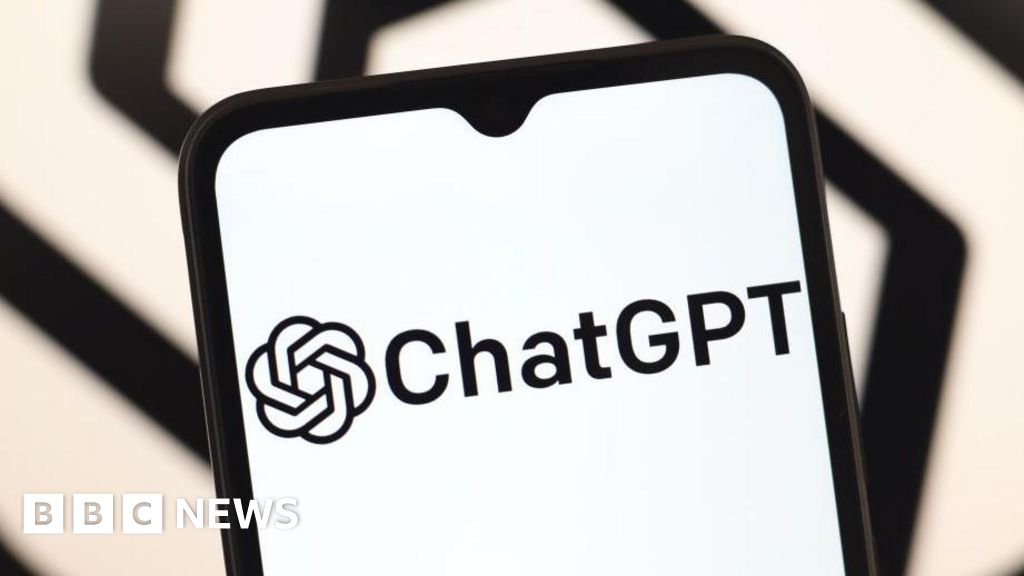
Thousands of people have reported they are unable to use the world’s best-known artificial intelligence (AI) tool, ChatGPT
Downdetector, which tracks website outages, showed more than 10,000 people reported the AI chatbot, which is made by OpenAI, was not working in the UK on Thursday.
Users attempting to use it were met with a message reading “the web server reported a bad gateway error”.
OpenAI has not yet publicly commented on the outage. The BBC has contacted the firm for comment.
However, many people have taken to social media to highlight the problem and the disruption it is causing them.
The outage began around 11:00 GMT on Thursday, and users continue to report issues.
ChatGPT’s status page said the app had been “experiencing elevated error rates” and the firm was “currently investigating”.
Though many people use the free version of the chatbot, the firm charges up to $200 per month for its various membership tiers.
OpenAI boss Sam Altman said in December that ChatGPT is used weekly by more than 300 million people worldwide.
It comes after tech firms including OpenAI pledged a $500bn (£405bn) investment into AI infrastructure in the US.
Politics
Reform UK: Chairman Zia Yusuf REJECTS Suella Braverman’s offer of a Tory-Reform pact: ‘Betrayed British people!’
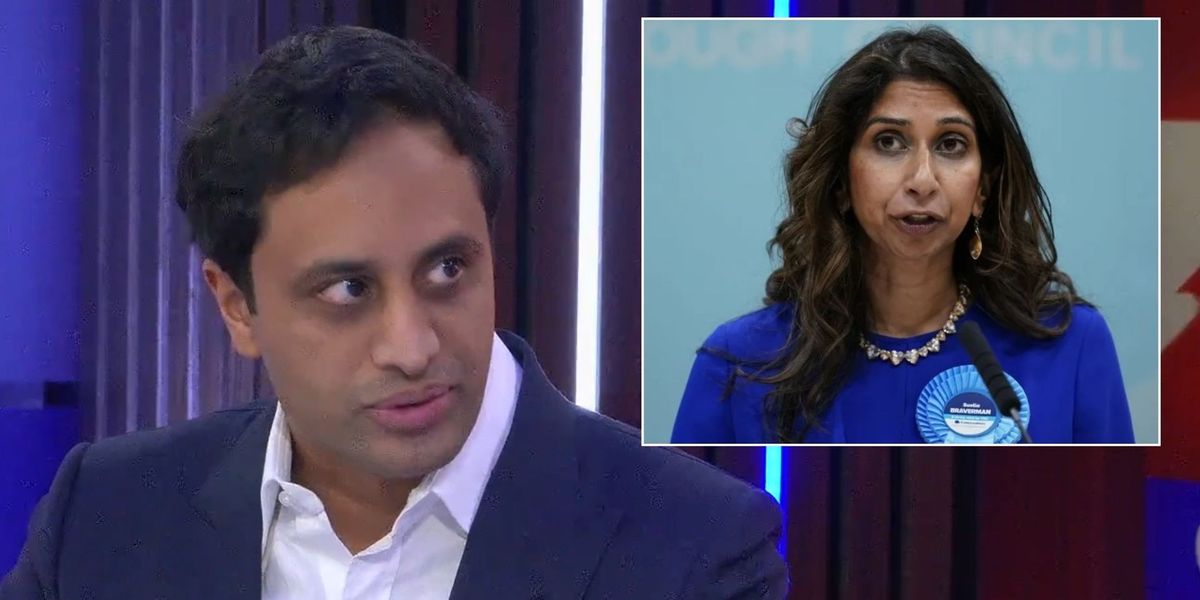
Reform UK chairman Zia Yusuf has expressed disappointment at Suella Braverman’s suggestion for an electoral pact between the populist party and the Conservatives.
Speaking on GB News, Yusuf firmly rejected any possibility of a deal with the Tories, questioning how Reform could work with a group that “deal entirely in deception, in falsehoods, and betrayal”.
Yusuf’s comments came after the former Home Secretary called for unity on the right during a visit to Washington DC for Donald Trump’s inauguration.
Speaking on GB News, Yusuf said: “I agree with her that there isn’t space for two, and the reality is Reform has already overtaken the Conservative Party.
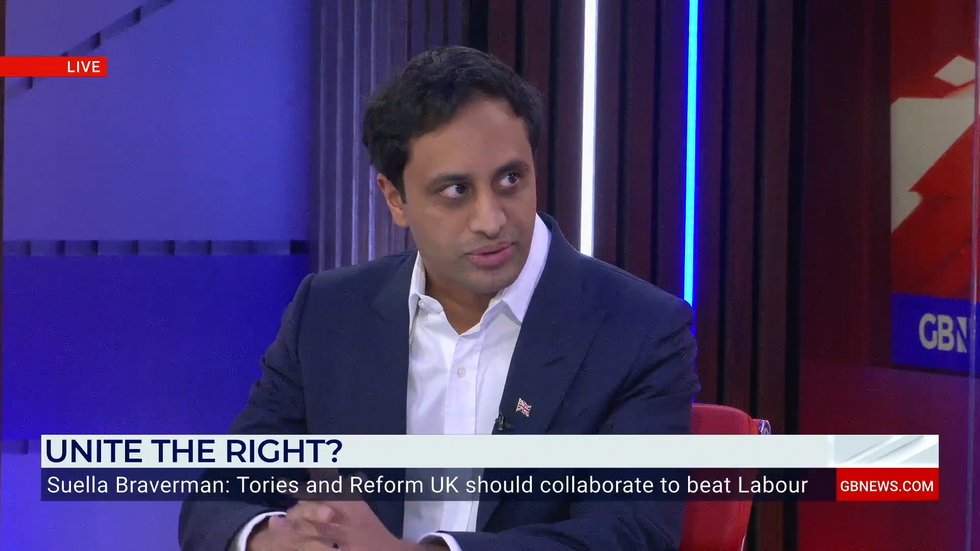
Zia Yousef said that Reform will never have a pact with the Tories
GB News
“Look, how can you do a deal? How can you do a pact with a group, with a tribe who deal entirely in deception, in falsehoods, and betrayal?
“They have betrayed the people of Britain to such an extraordinary degree that they will fully deserve the extinction event that’s now facing them.
LATEST DEVELOPMENTS
“The pollsters have a great deal of discretion to flex things up and down and none of the pollsters want to go first, because pollsters largely have no interest in being correct. They just want to not be demonstrably wrong. You’ll see in the coming weeks, Reform surging ahead of the Tory party, as we already have done in several polls.
“But look, just look at the Tories’ track record here. Over the 14 years that they were in government, they grew the size of the population of the United Kingdom by six and a half million people.
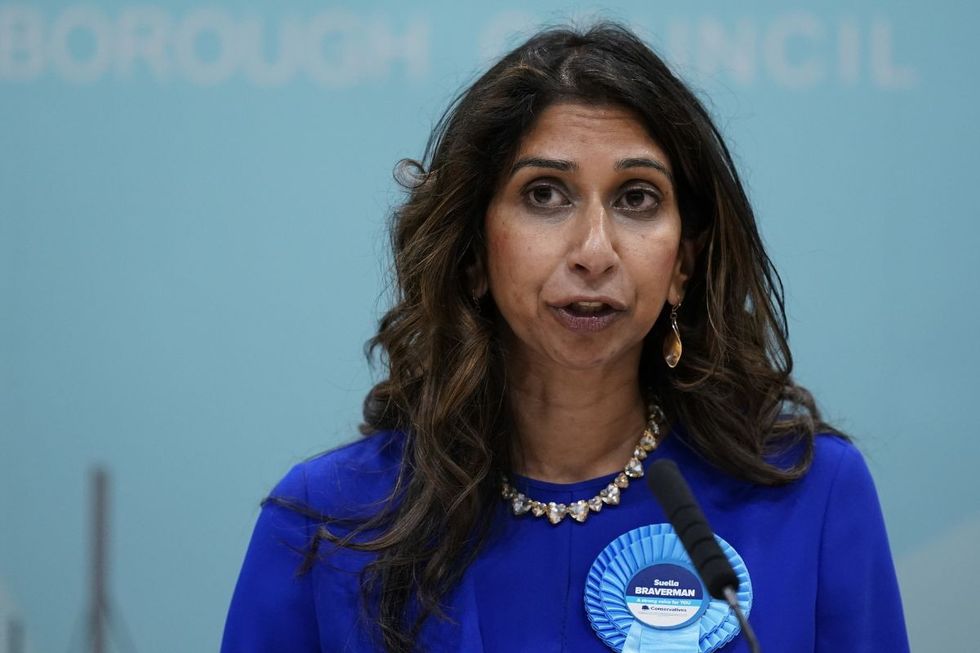
Suella Braverman suggested a pact between the parties
PA
“They built no new net prison places, which is why we have violent criminals running rampant around the United Kingdom and people feel terrified to leave their homes, particularly women. The 2010, the 2015, the 2017, and the 2019 manifesto, they promised to bring that migration down to the tens of thousands. What did they do? They left office with that number at one million.”
He added: “We will never do a deal with the Tory party, because they will never again get a chance to betray the British.”
Braverman made her comments while attending Trump’s inauguration in Washington DC, where she praised the former President’s style of “unfiltered conservatism”.”
“Donald Trump has not just shifted Overton window, he’s shattered it,” Braverman told The Telegraph.
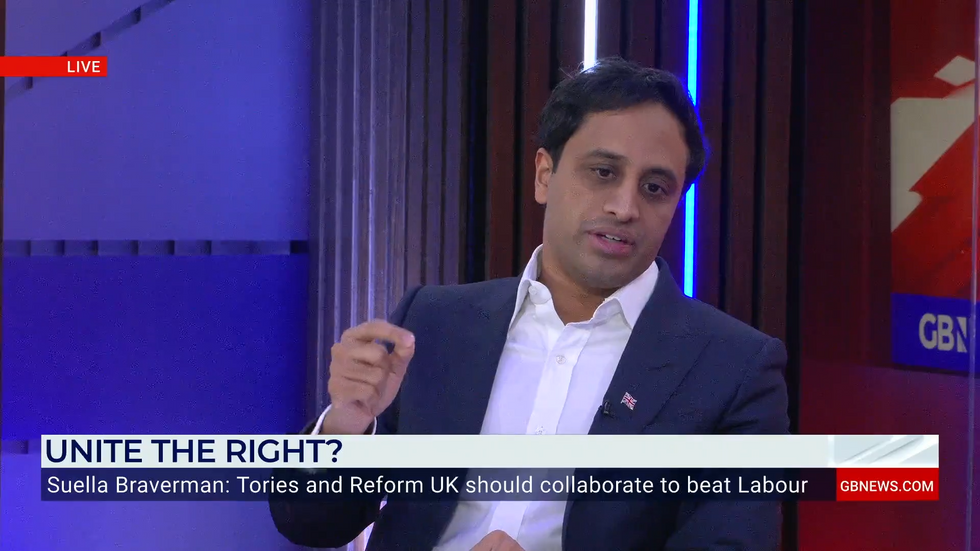
Zia Yousef said the Tories have “betrayed the British people”
GB News
“He’s made the unsayable mainstream and he’s made the radical much more acceptable to the moderates.”
Braverman added she was open to various forms of cooperation, including “a merger, a coalition, a supply and confidence agreement, or a non-aggression pact”.
The former Home Secretary also aligned herself with Reform UK’s position on leaving the European Convention on Human Rights.
NewsBeat
Prince Harry’s legal battles: Who is the duke still taking against and which cases are settled?

The Duke of Sussex settled his legal action against the publishers of The Sun newspaper on Wednesday, receiving a rumoured eight-figure settlement and a “full and unequivocal apology” for intrusion into his private life.
It has been described as a “monumental victory” for Prince Harry against the British press and came after he secured a separate victory against the publishers behind The Mirror in 2023.
But his legal battles are not yet over, as he is still engaged in two other high-profile cases in the British courts against the Home Office and publishers of the Daily Mail.
Here is an explanation of all of Harry’s past and present legal battles:

What cases are over?
Mirror Group Newspapers (MGN)
In 2023, the High Court ruled in Harry’s favour in his case against the publishers of The Daily Mirror.
A 386-page judgment found that “extensive” phone hacking had taken place at Mirror Group Newspapers (MGN) titles over several years. This included phone hacking, “blagging” (gaining information by deception), and the use of private investigators for unlawful activities.
The court ruled that the practice was “widespread and habitual” at the Daily Mirror.
The case against MGN was heard over a seven-week trial and included testimony from Harry, alongside other representative claimants.
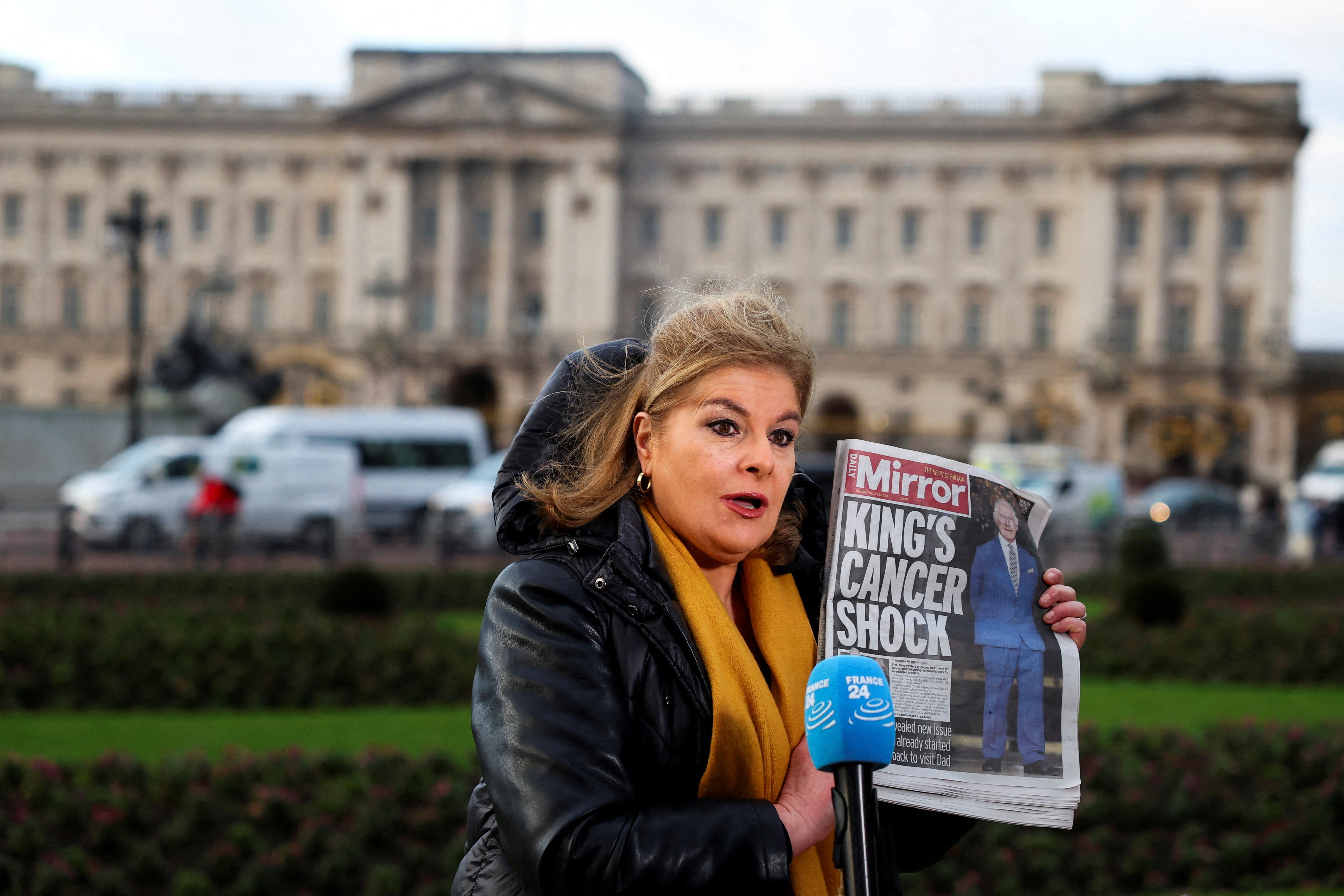
News Group Newspapers (NGN)
On Wednesday, a line was drawn under Harry’s five year legal battle against the publishers of The Sun newspaper, News Group Newspapers (NGN).
The duke settled with the publishers after eleventh-hour discussions on the day his high-stakes trial was set to begin on Tuesday.
Though he did not technically win the case in a court of law, it marked a “monumental victory” for the duke as he received an apology for many of the claims he made against the publisher a “substantial” sum for damages.
NGN, a subsidiary of News UK owned by Rupert Murdoch’s News Corp, said it offered a “full and unequivocal apology to the Duke of Sussex” for “serious intrusion” by The Sun and for phone hacking by private investigators working for the News of the World.

What cases are ongoing?
Associated Newspapers Limited (ANL)
Harry’s case against the publishers of the Daily Mail for unlawful information gathering could go to trial in early 2026.
The Duke of Sussex has accused the publisher of allegedly commissioning unlawful activities, including hiring private investigators to place listening devices inside cars, recording private phone conversations “blagging” private records, and even burglaries to order.
He is among a group of high-profile individuals fighting the case, including Stephen Lawrence’s mother, Baroness Doreen Lawrence, Sir Elton John and his husband David Furnish, actresses Sadie Frost and Liz Hurley, and politician Sir Simon Hughes.
The group is bringing legal action against Associated Newspapers Limited (ANL), which firmly denies the allegations, previously telling the court that they are “lurid” and “simply preposterous.

The Home Office
Harry took legal action against the Home Office over the February 2020 decision to change the level of his personal security when he visits the UK.
In a judgment last February, retired High Court judge Sir Peter Lane rejected the duke’s case and concluded Ravec’s approach was not irrational nor procedurally unfair.
However, the Court of Appeal said in June last year that it will hear his challenge following a direct application from Harry’s lawyers, who said Harry had been granted permission to appeal.
However, the Court of Appeal has now said it will hear his challenge following a direct application from Harry’s lawyers, who said Harry had been granted permission to appeal.
The appeal is now expected to be heard in the spring.
Politics
Common Sense with Robert Jenrick
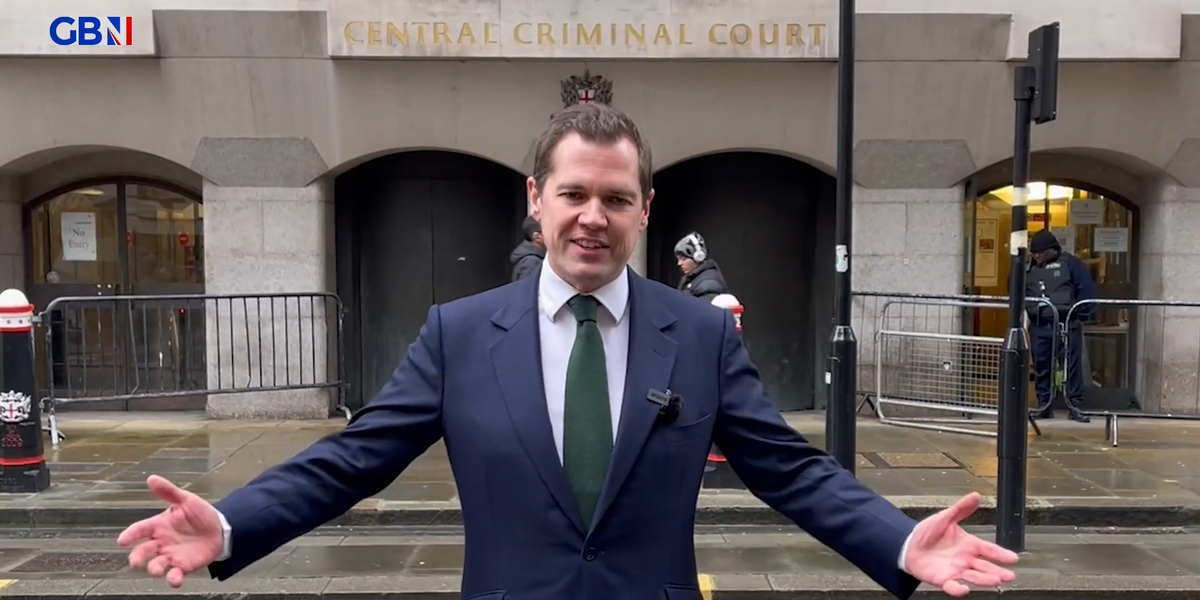

Robert Jenrick has highlighted a severe crisis in England’s court system in his latest episode of Common Sense.
He explained that nearly half of all courtrooms at London’s Central Criminal Court are currently empty in a shocking revelation.
Speaking outside the Old Bailey, Jenrick pointed to 11 vacant courtrooms in the building, describing it as “the beating heart of our legal system”.
The situation is even more dire in Carlisle, where 67 per cent of courtrooms stand empty, while Bristol sees 40 per cent of its courtrooms unused on average each week.
The court system is facing a mounting crisis with a backlog of 73,000 cases, which is increasing by 500 cases every month.
In episode two, Jenrick speaks to James from the Criminal Bar Association, and highlights “the right to a fair trial in a reasonable time frame”.
Watch the second episode of ‘Common Sense with Robert Jenrick’ above
NewsBeat
Could you pass a Cambridge English exam from 1913?
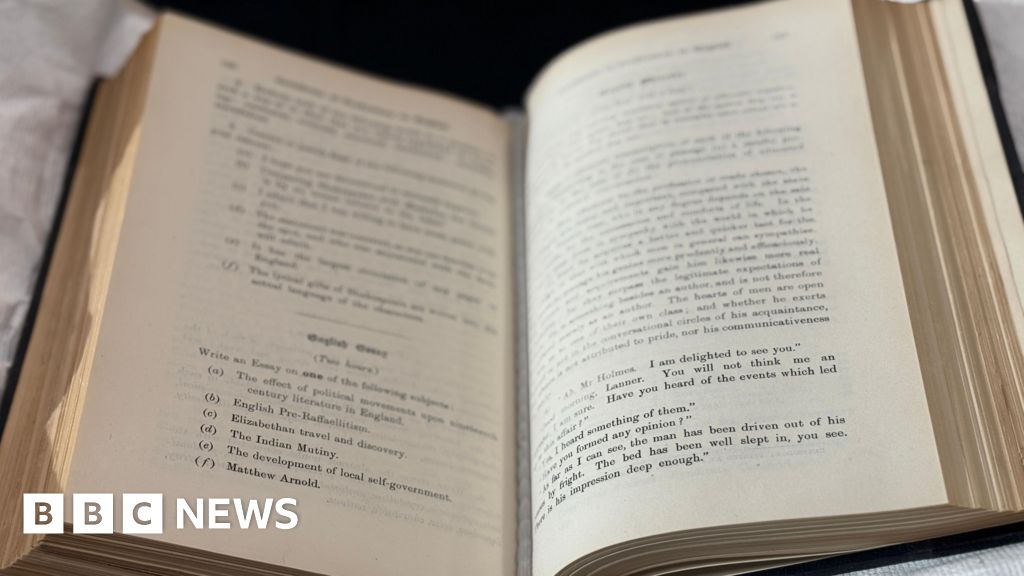
BBC News correspondent, East of England
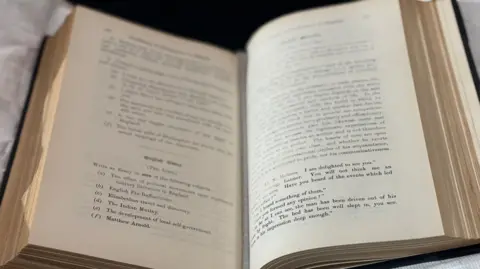 BBC
BBCDo you remember the feeling of sitting an exam? The halls crammed with desks and the sound of the ticking clock. Cambridge University Press and Assessment (CUP&A), one of the UK’s biggest exam providers, has been setting papers since the 1850s and its English exams have now been taken by more than 100 million people around the world. But today’s exam is very different to that very first paper.

In 1913, three people sat down to take the first Cambridge English exam. They were all teachers and all of them failed. But would you? This is one of the questions – you can find the answers at the end.
Correct or justify four of the following sentences, giving your reasons:
(a) I hope you are determined to seriously improve.
(b) Comparing Shakespeare with Aeschylus, the former is by no means inferior to the latter.
(c) I admit that I was willing to have made peace with you.
(d) The statement was incorrect, as any one familiar with the spot, and who was acquainted with the facts, will admit.
(e) It has the largest circulation of any paper in England.
(f) The lyrical gifts of Shakespeare are woven into the actual language of the characters.
The exam comprised a series of papers on phonetics, grammar, and translation, which took 12 hours to complete.
“At first, it was an exam for a small elite who wanted to study English as an academic subject, like Latin or Ancient Greek,” says Dr Evelina Galaczi, director of research at CUP&A.
“At the time, grammar and translation were considered the most important thing, but now the exam is much more about using English to communicate.
“The shift was gradual, but in the Second World War English became a global language and so speaking and pronunciation became much more important.
“That was a catalyst for change, and I firmly believe that learning English opens doors.”
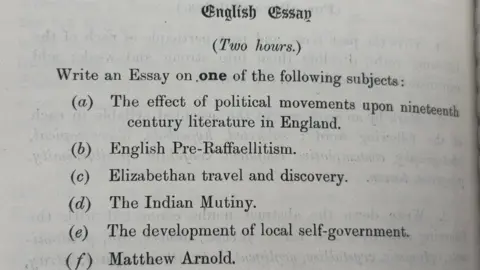
By the 1950s, there had been requests for the English exam to offer translation questions in dozens of different languages, ranging from Arabic to Vietnamese.
Gillian Cooke, group archivist at CUP&A, said: ” I think the take up for each language was quite small and so that probably wasn’t cost effective.
“It might be one of the reasons why the translation paper was dropped in the 1970s.”
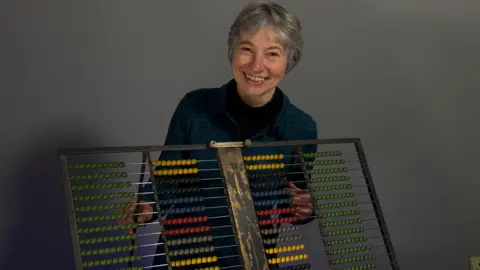
The Cambridge English exam has continued to evolve.
There are now different versions tailored to the needs of schools, higher education, and businesses.
“More than 100 million people across 130 countries have now sat our English exams,” says marketing director for higher education, Ian Cook.
“They’re recognised by more than 25,000 organisations from governments – which use them for immigration purposes – to employers and universities.
“Some universities in Germany, Sweden, and East Asia, for example, deliver IT and healthcare courses in English in order to attract the best candidates and so students need to show they have the language skills to cope with the course.”

Today, the exams are also available digitally and artificial intelligence (AI) is being used to create adaptive tests.
“In simple terms, the next question you’re served up depends on how well you answered the previous one,” says Mr Cook.
“And by offering a range of slightly more difficult and then easier questions as you go through, the technology will help to find your level.
“Our expertise and research have proven that the more teaching and tests are personalised, the better for students.
“We want people to have confidence, to pass – and show what they’re capable of.”
Despite the changes, CUP&A insists that its approach is as much about continuity as innovation.
Dr Galaczi adds: “Examiners and AI work together in marking and setting content for the exams, so we harness the strengths of both the human being and the machine.”
How did you do?
CUP&A says opinions about correct English grammar have changed, but in 1913, these would have been the expected answers:
(a) This is a split infinitive which would have been considered wrong. It should have said “to improve seriously”
(b) This is a hanging participle. It should have read “Shakespeare is by no means inferior to Aeschylus”. Now we would say “Shakespeare is just as good as”.
(c) Wrong tense. It should be “to make peace”.
(d) “Would admit” not “Will admit”.
(e) Correct
(f) Correct
NewsBeat
Corpse flower: Plant with ‘deadly’ stench pulls huge crowds for rare bloom in Sydney | Offbeat News

People have queued for hours at a Sydney greenhouse to get a whiff of the infamous corpse flower, as it bloomed for the first time in years.
The sizeable flower, officially called the amorphophallus titanium, gets its nickname from its “deadly” stench, described by some as the smell of rotting flesh, though others detect hints of rotting food, sweaty socks or even garlic.
The rare specimen, of which there are only thought to be about 1,000 worldwide, has attracted thousands of admirers at the Royal Sydney Botanic Garden, with its blooming finally happening after a seven-year wait since it arrived at the centre.
When its flower was spotted in December it was just 25cm (10 inches) high. By Thursday, as its flower spike slowly opened, it was 1.6m (5ft 3) tall.
For a week, the flower fronted a stately and gothic display in front of a purple curtain and wreathed in mist from a humidifier at the garden, attracting up to 20,000 admirers who filed past, hoping to experience the smell for themselves.
This particular flower has been nicknamed Putricia by fans – a combination of “putrid” and “Patricia”, and has become something of a social media star, with a 24/7 live stream established by the botanic garden drawing close to a million views in the days approaching its bloom.
When it finally opened on Thursday, fans in attendance took selfies and leaned in for a sniff – and staff prepared for the worst.
“We did have a few conversations early on about whether or not we should have vomit bags in the room,” said garden spokesperson Sophie Daniel, who designed Putricia’s display, adding garden staff ultimately decided against it.
Read more:
Elephants can’t pursue release because they are not people
Cat left on plane ends up taking three flights
“I haven’t heard of anyone actually being harmed.”
The corpse flower only blooms for one to three days despite taking up to a decade to do so.
“The fact that they open very rarely, so they flower rarely, is obviously something that puts them at a little bit of a disadvantage in the wild,” Ms Daniel said.
“When they open, they have to hope that another flower is open nearby, because they can’t self-pollinate.”
The amorphophallus titanum is native to the Indonesian island of Sumatra and is listed as endangered by the International Union for Conservation of Nature.
NewsBeat
Sky News reporter cries live on air reading Southport killing evidence | News
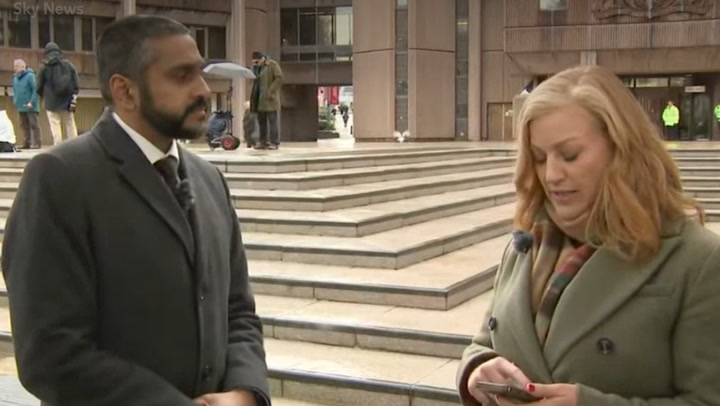

Warning: This video contains distressing content.
Sky News reporter Sarah-Jane Mee broke down in tears reading out evidence from court in the sentencing of Southport killer Axel Rudakubana.
Rudakubana, 18, stabbed and killed Alice da Silva Aguiar, Bebe King and Elsie Dot Stancombe., with a 20cm-long kitchen knife as he ambushed a Taylor Swift-themed dance class in Southport, Merseyside.
Reporting live from outside Liverpool Crown Court on Thursday (23 January), the broadcaster became visibly emotional as she recounted evidence from police arriving at the scene.
The broadcaster then had to step-off camera as her voice broke.
-

 Fashion8 years ago
Fashion8 years agoThese ’90s fashion trends are making a comeback in 2025
-

 Entertainment8 years ago
Entertainment8 years agoThe Season 9 ‘ Game of Thrones’ is here.
-

 Fashion8 years ago
Fashion8 years ago9 spring/summer 2025 fashion trends to know for next season
-

 Entertainment8 years ago
Entertainment8 years agoThe old and New Edition cast comes together to perform You’re Not My Kind of Girl.
-

 Sports8 years ago
Sports8 years agoEthical Hacker: “I’ll Show You Why Google Has Just Shut Down Their Quantum Chip”
-
Business8 years ago
Uber and Lyft are finally available in all of New York State
-
Entertainment8 years ago
Disney’s live-action Aladdin finally finds its stars
-
Sports8 years ago
Steph Curry finally got the contract he deserves from the Warriors
-
Entertainment8 years ago
Mod turns ‘Counter-Strike’ into a ‘Tekken’ clone with fighting chickens
-
Fashion8 years ago
Your comprehensive guide to this fall’s biggest trends










You must be logged in to post a comment Login